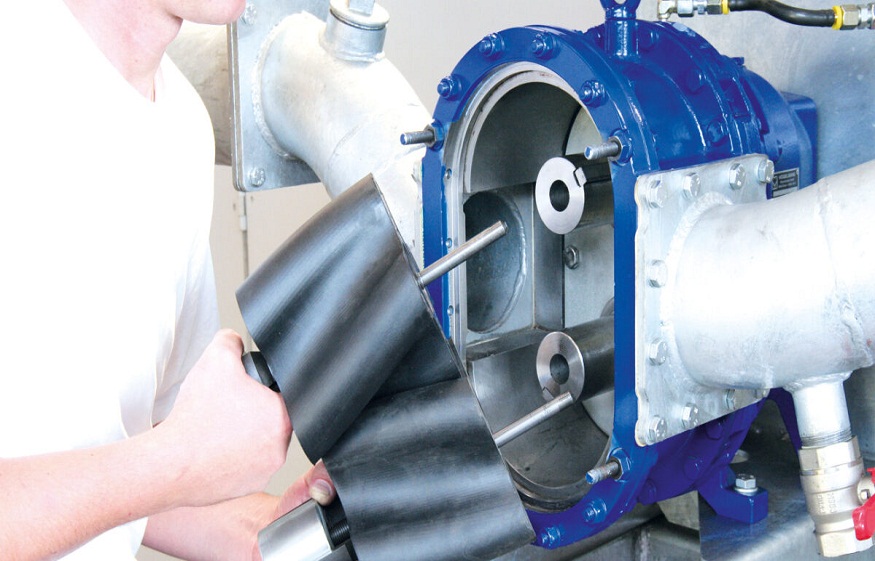Comparing PC Pumps and Traditional Oil Pumps: Pros and Cons for Manufacturers
Selecting the right pump for oil extraction and fluid transfer can significantly impact efficiency, cost, and operational performance for manufacturers. Progressive cavity (PC) pumps and traditional oil pumps are two popular choices in industrial settings, each with its own set of advantages and challenges.
This blog explores the differences between PC pumps and traditional oil pumps, helping manufacturers make informed decisions about which solution best suits their needs.
What Are PC Pumps and Traditional Oil Pumps?
Before we break down the pros and cons, it’s essential to understand what sets these two types of pumps apart.
Progressive Cavity (PC) Pumps
PC pumps are a type of positive displacement pump designed for consistent and smooth fluid transfer. These pumps feature a helical rotor and a stator, which create cavities that progressively move fluid through the system without pulsation. They’re known for handling highly viscous fluids and solid-laden mixtures with ease.
Traditional Oil Pumps (Gear Oil Pumps)
Gear oil pumps, a category of traditional oil pumps, use rotating gears to move fluids. These pumps are also positive displacement systems, relying on the mechanical action of gears to trap and transfer liquid. They’re commonly used for oil transfer and lubrication in industrial applications.
Key Differences Between PC Pumps and Traditional Oil Pumps
While both PC pumps and gear oil pumps perform fluid transfer efficiently, their differences lie in specific applications, design considerations, and operational outcomes. Let’s break them down further.
1. Handling of Viscous and Solid-Laden Fluids
- PC Pumps excel in handling highly viscous materials or fluids containing solids or abrasive particles. They offer consistent performance even with slurries or thick mixtures often found in heavy industries such as oil and gas, mining, or wastewater management.
- Traditional Oil Pumps, like gear oil pumps, are generally better suited for low- to medium-viscosity fluids. They perform well in situations where fluid consistency is uniform and free from particles or abrasives.
2. Flow Rate and Pressure
- PC Pumps maintain a steady, non-pulsating flow regardless of system pressure. This makes them suitable for applications requiring precision, such as food and beverage or chemical processing, where consistent fluid movement is crucial.
- Traditional Oil Pumps may generate fluctuation in flow due to their mechanical gear design, with efficiency and consistency decreasing as viscosity increases.
3. Maintenance Requirements
- PC Pumps tend to have higher upfront costs but require less frequent maintenance when properly used. Their robust design can handle a variety of challenging substances with minimal wear and tear.
- Traditional Pumps, on the other hand, are simpler in design and cost-effective initially but often require frequent maintenance, especially when dealing with viscous oils or contaminated fluids.
4. Energy Efficiency
- PC Pumps generally require more energy to operate than traditional oil pumps, especially in high-pressure applications. However, their ability to maintain operational stability over time compensates for these energy demands.
- Traditional Oil Pumps tend to be more energy-efficient for low-viscosity and steady-fluid applications.
5. Cost Considerations
- PC Pumps: The initial cost of a PC pump is higher due to its intricate design and versatility. Over time, though, the reduced downtime and maintenance may make it a cost-effective option for specific applications.
- Gear Oil Pumps: Traditional oil pumps are typically more affordable upfront but may require frequent replacement and higher long-term maintenance costs when used in challenging applications.
Pros and Cons of PC Pumps
Pros
- Exceptional for highly viscous or abrasive liquids
- Reliable, steady, and non-pulsating flow
- Reduced maintenance needs, ensuring stable long-term performance
- Versatile in handling diverse industrial applications, from sludge transfer to chemical dosing
Cons
- Higher initial cost
- Requires more energy in certain high-pressure applications
- Bulkier and heavier compared to gear oil pumps
Pros and Cons of Traditional Oil Pumps (Gear Oil Pumps)
Pros
- Affordable to purchase and install
- Simple technology that’s easy to maintain and operate
- Excellent for pure, low-viscosity oils and lubricants
- Compact and lightweight design
Cons
- Susceptible to wear when handling abrasive or solid-laden fluids
- Requires more frequent maintenance and potential downtime
- Less suitable for highly viscous or mixed-fluid applications
- Some pulsation in fluid delivery
Choosing the Right Pump for Your Needs
Selecting between a PC pump and a traditional oil pump boils down to your specific business requirements. Here’s what to consider when making your decision:
- Type of Fluid – If you’re working with abrasive materials or high-viscosity liquids, PC pumps are the better choice. For simple oil transfer, traditional pumps like gear oil pumps are more economical.
- Consistency and Quality – For applications requiring precise, pulsation-free flow, invest in PC pumps.
- Budget – Assess your short-term vs. long-term costs. Gear oil pumps may save you money upfront, but frequent maintenance could raise costs over time.
- Industry – Heavy industries like mining or wastewater management thrive with PC pumps due to their durability and reliability. Gear oil pumps are more suited to industrial applications for lubrication and straightforward oil transfer.
PC Pumps vs. Traditional Oil Pumps: The Bottom Line
Both PC pumps and traditional oil pumps have distinct advantages and limitations. Choosing the right pump depends entirely on your application, the type of fluid you’re handling, and your long-term business goals.
At the end of the day, investing in the right pump means investing in efficiency, reduced downtime, and optimized performance.
If you’re not sure where to begin, reach out to a fluids expert or consult with a pump provider that specializes in both PC and traditional systems to get tailored advice for your manufacturing needs.

